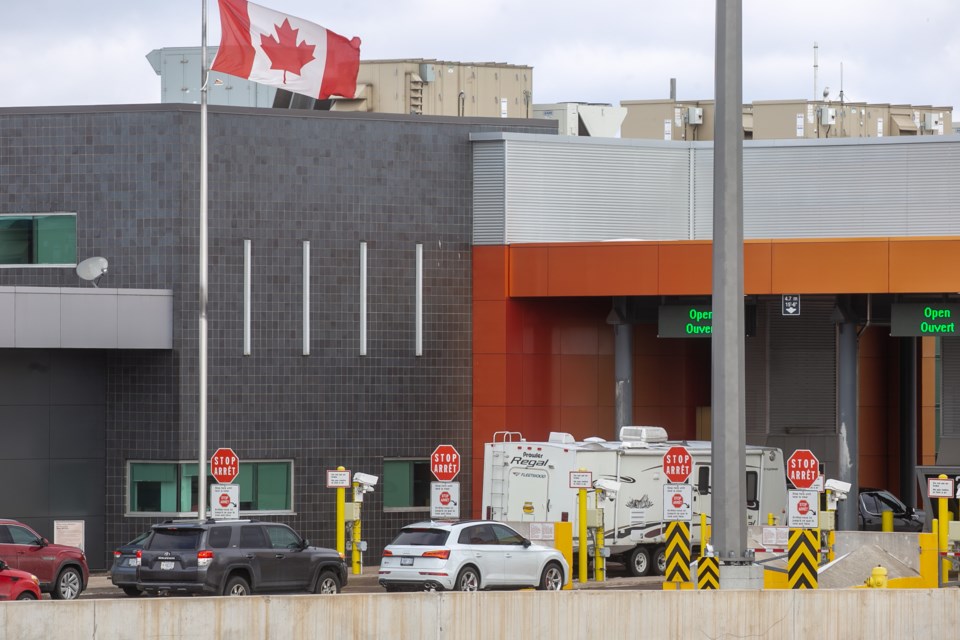The land border crossing entering Sault Ste. Marie, Ontario began operating with fewer restrictions and more lanes open on Friday, but a Canada Border Services Agency spokesperson says all is not entirely back to normal and there are some things travellers to the country still need to know.
The biggest change that went into effect Friday is that fully vaccinated travellers entering Canada no longer need to provide proof of a negative PCR or rapid test for COVID-19, said Patrick DesChene, acting chief of operations for CBSA in Sault Ste. Marie.
Even though tests are not required, all travellers entering Canada could still be selected for mandatory random testing, said DesChene.
Travellers entering the country after April 1, including those who are fully vaccinated, are still required to use the ArriveCAN phone app to provide mandatory travel information to border officials within 72 hours before arriving in Canada.
People who are less technologically skilled can choose to fill out an online form and print out the result to present to border officials. This can be done with the assistance of a friend, family member or another helpful third party.
“I do understand there is still a small minority of people who don’t have a cell phone,” said DesChene. “I understand some elderly people are not the most tech savvy so they had issues navigating ArriveCan on cell phone. It might be easier for them to access online.”
“When you do it online it will generate a code and when the client comes through the booth at the border they just need to hand the paper to the officer,” said DesChene.
To expedite the process, DesChene recommends travellers have the forms or app filled out prior to entry into Canada. Border officers may be able to assist people entering Canada, but that can increase the processing time exponentially.
“To expedite process and reduce wait times it's best to have it ready,” said DesChene.
Those who refuse to use the ArriveCAN app or provide a filled-out printed form could face a 14-day quarantine or be denied entry into the country.
Travel to Canada is still prohibited for foreign nationals who do not qualify as fully vaccinated, said DesChene.
Commercial traffic has been steady throughout the pandemic, said DesChene, but non-commercial traffic has been at much lower-than-usual levels for the past two years.
Despite the reduction in overall traffic, DesChene said the processing time for each traveller was increased substantially during the first two years of COVID. He said there were no layoffs of staff due to the decreased traffic in the past two years.
Non-commercial traffic increased substantially early on Friday when the restrictions were lessened, said DesChene.
“We have more than one lane open again, travellers are definitely taking advantage of restrictions being lessened,” he said. “For the most part in the last two years a single lane has been able to deal with most of our traffic.”
With an increase in traffic and new rules, DesChene expects officers at the border to be spending less time on enforcing COVID restrictions and more time focusing on questions about what goods are being brought into the country, as well as screening for who is admissible to the country and looking for possible criminality.
“This is essentially what officers are hired to do, to process travellers coming into the country,” said DesChenes. “As restrictions have lessened we are starting to see an increase in officers getting back to ensuring the protection of Canadians and that people coming in to the country are meeting all of the requirements.”
